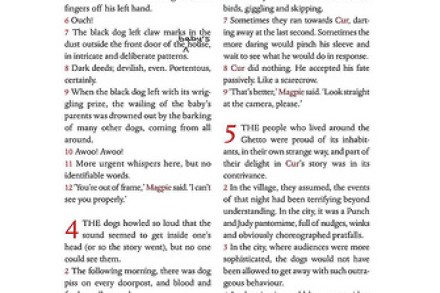Bookend: Unbalanced chorus
Mark Mason has written the Bookend column in this week’s issue of the magazine. Here it is for reader’s of this blog. Imagine a 77-year-old woman hanging around, say, Leicester bus station, telling people about her life. She confides her belief that she is under surveillance by the military. She maintains that she can ‘see the reality of the web of synchronicity in my life’. Showing off her special jewellery that ‘helps balance the chakras’, she reveals that ‘because I had a high metabolism and moved around a lot, I had no real [weight] problem until I was about 50’. Past-life experiences figure heavily. She was a ‘harem girl in







